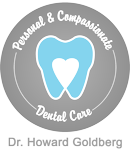Non-Surgical Periodontal Therapy
There is a wide range of procedures at the disposal of dentists for the treatment of periodontal diseases and conditions, and we want to provide the most minimally invasive and cost-effective option for you. Often, this means that patients can undergo non-surgical treatments to restore periodontal health, more specifically something referred to as scaling and root planing. This procedure is used to remove bacteria and built-up tartar from deep within the gum pockets surrounding the teeth. It usually involves supplemental therapy, such as the use of topical antibiotics.
Frequently Asked Questions
Am I a candidate for non-surgical periodontal therapy?
Only your dentist can tell you if you are a candidate for non-surgical periodontal therapy. However, non-surgical treatments are typically only available to patients with mild to moderate periodontal disease. Schedule a consultation with your dentist to find out if non-surgical treatment is right for you.
What should I expect during a non-surgical periodontal therapy?
During this procedure, you’ll be given a local anesthetic to prevent discomfort, and small, thin instruments will be used to remove tartar and smooth the root surfaces of your teeth to prevent bacteria build-up.
Will I need to follow any special instructions following non-surgical periodontal therapy?
In the days following your scaling and root planing treatment, you may experience heightened tooth sensitivity. Use a sensitivity toothpaste and try to eat only soft foods to prevent pain. If you were prescribed antibiotic, be sure to take it according to your dentist’s instructions.















